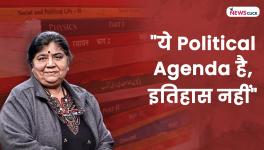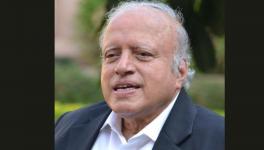Govt Textbook Cuts Continue: Periodic Table, Democracy, and Energy Sources Eliminated from Class 10 Curriculum

Image Courtesy: Wikimedia Commons
New Delhi: The National Council of Educational Research and Training (NCERT) has come under scrutiny for removing important topics from government-issued textbooks. In an effort to reduce the "burden on students," complete chapters on essential subjects such as the periodic table, democracy, and sources of energy have been deleted from the Class 10 Science and Political Science curriculum.
Earlier this year, excluding the theory of evolution from the science textbook, sparked widespread concern. According to a report in The Hindu, newly released textbooks by the NCERT have now revealed further cuts, including removing a chapter on the periodic table. Alongside this omission, chapters on environmental sustainability, sources of energy, democracy, challenges to democracy, and political parties have also been dropped for Class 10 students in the latest revision.
The NCERT claims rationalisation was necessary due to the ongoing coronavirus pandemic. Reasons cited by the council for removing these chapters include the difficulty level, overlapping content, and content deemed irrelevant in the present context. “In view of the COVID-19 pandemic, it is imperative to reduce content load on students. The National Education Policy 2020, also emphasises reducing the content load and providing opportunities for experiential learning with creative mindset. In this background, NCERT has undertaken the exercise to rationalise the textbooks across all classes,” the NCERT explained. However, students still have the option to study these subjects if they choose the relevant courses in Class 11 and Class 12.
Critics have expressed concerns over the reduction in content, arguing that it may hinder students' comprehensive understanding of fundamental concepts. Jonathan Osborne, a science-education researcher at Stanford University, highlighted the significance of the periodic table, describing it as one of the most outstanding intellectual achievements in chemistry that explain the combination of life's building blocks to generate substances with diverse properties.
While the government has rejected the criticism, labelling it as propaganda, the omission of critical chapters from the curriculum continues to draw attention. Earlier controversies surrounding the removal of Darwin's theory of evolution and the exclusion of prominent figures like Maulana Abul Kalam Azad from textbooks have already sparked public outcry. The broader debate emphasises the importance of maintaining an inclusive and comprehensive education system that equips students with a well-rounded understanding of critical subjects.
Get the latest reports & analysis with people's perspective on Protests, movements & deep analytical videos, discussions of the current affairs in your Telegram app. Subscribe to NewsClick's Telegram channel & get Real-Time updates on stories, as they get published on our website.























